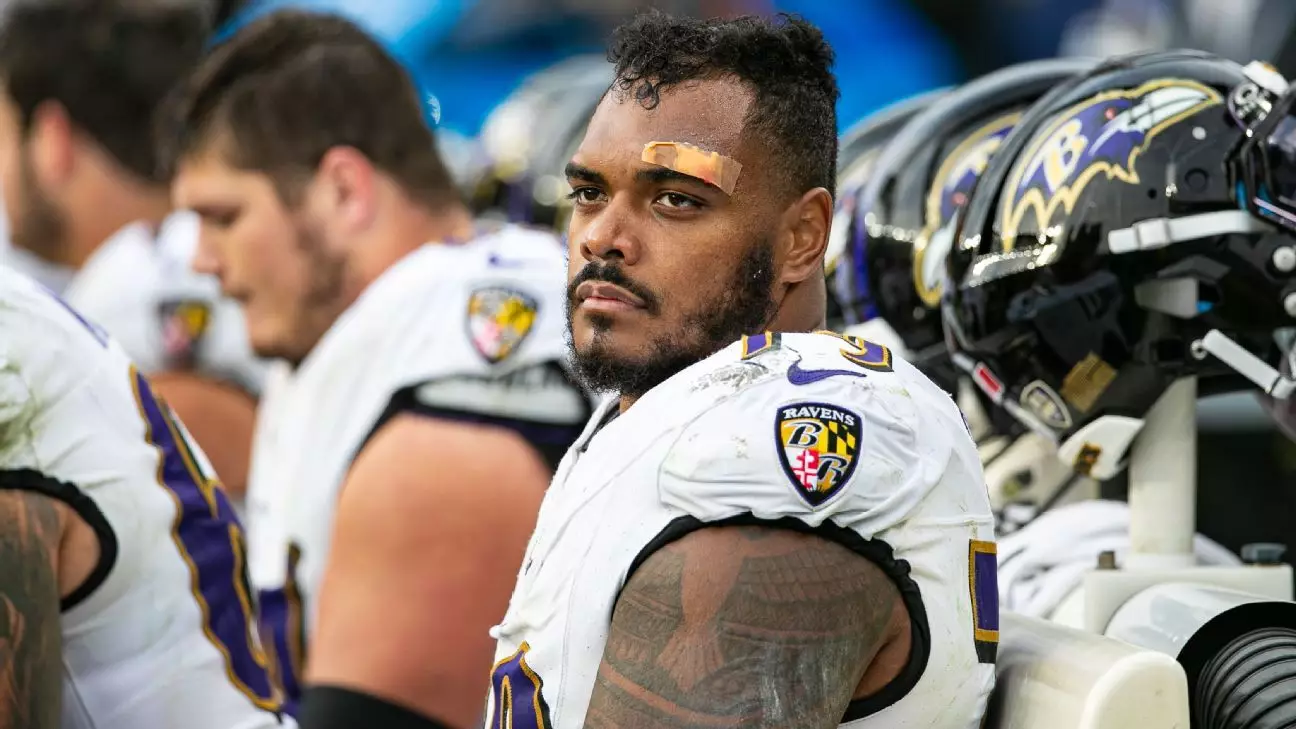In a landscape where professional athletes often prioritize the allure of free agency, Ronnie Stanley’s choice to re-sign with the Baltimore Ravens for a three-year, $60 million deal speaks volumes about personal values and strategic decision-making. On March 8, 2023, rather than testing the waters for potentially more lucrative deals from teams like the New England Patriots or Washington Commanders, Stanley opted for loyalty. This decision raises intriguing questions: What does it mean for an athlete to choose loyalty over maximized financial gain, and how does that reflect on their career trajectory?
Stanley himself articulated a sense of responsibility and gratitude towards the Ravens, noting, “I knew I was going to give Baltimore the best bargain that I would offer to any other team.” Such statements reflect a deeper understanding of the relationship between players and organizations, particularly when a team took a chance on a prospect. Stanley was drafted sixth overall by the Ravens in the 2016 NFL Draft, a pick that was questioned at the time in light of other more hyped players, including Laremy Tunsil. His tenure with the Ravens has allowed him to grow into a cornerstone player, embodying the franchise’s values while navigating his financial landscape judiciously.
Balancing Financial Wisdom and Team Loyalty
When Stanley signed his current deal, he not only took a pay cut from a previous contract that once made him one of the highest-paid offensive tackles, but he also solidified his bond with the franchise that invested in him early on. A significant aspect of his recent contract is its structure, which reflects a clear understanding of both team needs and personal fulfillment. “I still wanted to be happy with what I’m making and make sure I’m getting the value that I feel I deserve,” he remarked. This dual focus on both personal and team welfare is a delicate balance that many athletes fail to achieve.
In opting for this team-friendly arrangement, Stanley has positioned himself strategically within a league frequently characterized by constant turnover and financial opportunism. By choosing this route, he is not just securing his place in Baltimore’s roster; he is also ensuring his legacy within a franchise that he respects deeply. With a career punctuated by accolades, including two Pro Bowl selections, Stanley is well aware of the reputational risks involved in such decisions. Yet, his commitment exemplifies that loyalty can coexist with strategic thinking in the fast-paced world of professional sports.
Looking Ahead: A Legacy in the Making
Entering his tenth season with the Ravens, Stanley’s career trajectory is a captivating one. His resilience and performance after major injuries, particularly his significant left ankle injury in 2020, have shaped him into a leader on the field. During the previous season, Stanley not only displayed his skills but also made history by being the first Ravens All-Pro left tackle since the legendary Jonathan Ogden. Achievements like these only strengthen his standing within the league, yet they appear secondary to the ultimate goal: the pursuit of a Super Bowl victory.
Reflecting on the Ravens’ close defeat in the divisional playoffs against the Buffalo Bills, Stanley expressed a shared sentiment among athletes who remember such pivotal moments. He stated, “We’ve broken so many records… The only thing we really care about is winning a Super Bowl.” This statement captures the essence of a professional athlete—an unwavering focus on excellence and the hunger for championship success. The pressure to perform at a high level while navigating the intricacies of team dynamics is immense, but it is this challenge that makes Stanley’s commitment to the Ravens all the more inspiring.
Ultimately, Ronnie Stanley’s decision to re-sign with the Baltimore Ravens serves as a powerful reminder that loyalty and business savvy can indeed go hand in hand in the ever-evolving world of professional sports. His strategic foresight, paired with a commitment to his team, establishes him not just as a consistent player but as a leader in re-defining how career decisions can reflect both personal values and professional equity.


Leave a Reply